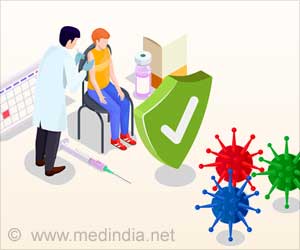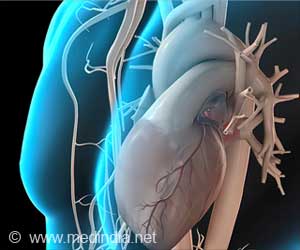Especially for those who are undergoing chemotherapy due to cancer, life has been miserable, because the tumor cells are not only attacked by the SARS-CoV-2 (the coronavirus) but the immune cells that are defending the body from a variety of infections are also attacked.
New research at the University of Arizona Health Sciences reveals the necessity to boost the immune response of the patients undergoing chemotherapy for cancer, with a 3rd booster dose of vaccine against the SARS-CoV-2.
“We wanted to make sure we understand the level of protection the COVID-19 vaccines are offering our cancer patients, especially as restrictions were being eased and more contagious variants were starting to spread,” said Rachna Shroff, MD, MS, chief of Gastrointestinal Medical Oncology at the Arizona Cancer Center and director of the Cancer Center Clinical Trials Office.
To answer this question, Dr. Shroff and a team of UArizona Health Sciences researchers looked at 53 cancer center patients on immunosuppressive active cancer therapy, such as chemotherapy. They compared the immune response following the first and second dose of the Pfizer-BioNTech COVID-19 vaccine with that of 50 healthy adults. Their results were published online in the journal Nature Medicine.
Most of the cancer patients showed little immune response to the vaccine shots, which means some antibodies were produced against the SARS-CoV-2 (coronavirus).
“We were pleasantly surprised,” said Deepta Bhattacharya, Ph.D., professor of immunobiology in the College of Medicine – Tucson and a member of the Cancer Center and BIO5 Institute. “We looked at antibodies, B cells, and T cells, which make up the body’s defense system, and found the vaccine is likely to be at least partially protective for most people on chemotherapy.”
The immune response developed after two doses of the vaccination is found to be less significant compared to that of the other healthier adults. Even worse is that some of the patients did not develop any antibodies after the vaccination. This makes these patients potentially high-risk candidates for SARS-CoV-2 and in particular, the Delta variant.
Given the situation that the Delta variant is already dominant in the USA, twenty of the tested patients were offered a third shot, and that boosted the adequate immune response in most of them. The third shot boosted the immune response in these tested individuals equivalent to that of the people who were not on chemotherapy.
This research began as soon as the Pfizer-BioNTech vaccine got approval from the federal government towards the end of 2020. To get the lucid results, the research team was focusing on the breast cancer patients, gastrointestinal cancer patients, and avoided the patients who are on immunotherapy.
“The fact that we could answer this question in such a short time speaks to what can happen when you leverage the varied expertise we have within UArizona Health Sciences,” said Dr. Shroff, who also is a member of the BIO5 Institute. “Cancer Center clinicians went above and beyond to enroll their patients in the study because we all had a unified goal to protect our patients.”
Source: Medindia



